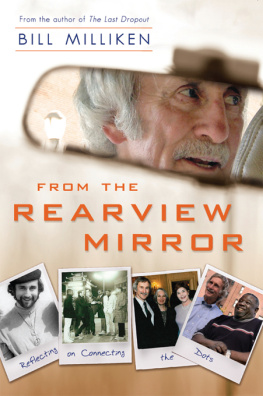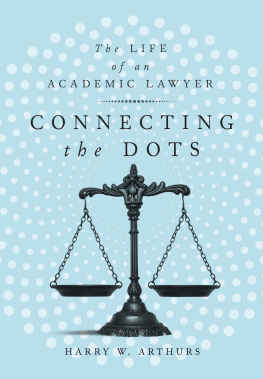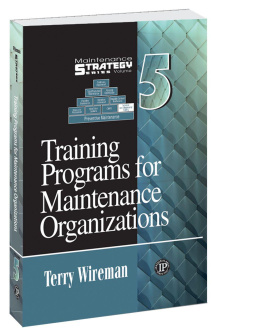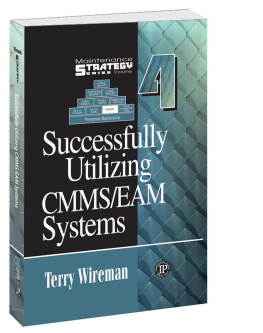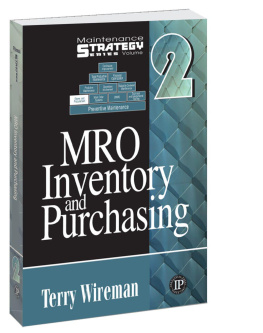Connecting
the Dots
Connecting
the Dots
Government,
Community, and
Family
Peggy
Wireman
First published 2008 by Transaction Publishers
Published 2017 by Routledge
2 Park Square, Milton Park, Abingdon, Oxon OX14 4RN
711 Third Avenue, New York, NY 10017, USA
Routledge is an imprint of the Taylor & Francis Group, an informa business
Copyright 2008 by Taylor & Francis.
All rights reserved. No part of this book may be reprinted or reproduced or utilised in any form or by any electronic, mechanical, or other means, now known or hereafter invented, including photocopying and recording, or in any information storage or retrieval system, without permission in writing from the publishers.
Notice:
Product or corporate names may be trademarks or registered trademarks, and are used only for identification and explanation without intent to infringe.
Library of Congress Catalog Number: 2008021799
Library of Congress Cataloging-in-Publication Data
Wireman, Peggy.
Connecting the dots / Peggy Wireman.
p. cm.
Includes bibliographical references and index.
ISBN 978-1-4128-0730-2 (alk. paper)
1. Neighborhood--United States. 2. Community development--United States. 3. Community organization--United States. 4. Family--United States. I. Title.
HT123.W49 2008
307.33620973--dc22
2008021799
ISBN 13: 978-1-4128-0730-2 (hbk)
This book is dedicated to the millions of grassroots activists working to improve their communities, to the many politicians and government bureaucrats dedicated to making the American dream work for all families, and to my immensely supportive friends and family.
Contents
If it takes a village to raise a child, it takes an international network to write a book. I am grateful to many people who contributed both directly and indirectly. The book draws upon the research and insights of many experts in academia, the government, and most importantly members of local communities where I have worked.
Because the book deals with a wide variety of substantive areas as well as treating both policy and grassroots practice issues, I am grateful to the following individuals who reviewed chapters for readability or to provide suggestions in their area of expertise: J. Simon Beck, Patricia Becker, Lynne C. Burkhart, Cephus Childs, Howard Czoschke, David Cook, Richard Davis, Edward R. Day, Luz Elena Solis Day, Lois Dobry, Alan Dobry, Judith Goren, Frances Griffiths, Mary Gulbrandsen, James Gullick, Ken Haynes, Bruce Hunt, Carole Hubbarth, Barbara Kellner, David Lasker, Richard A. Lehmann, Eleanor Roberts Lewis, Dode Lowe, Janet C. Marcotte, Janice Pasek, Carolyn Price, Holly Rogers, Hannah Rosenthal, Antoinette Sebastian, Arthur Thexton, Pat Turner, Barry Wellman, Victor Wilburn, Michael S. Wireman, and Tim Wise.
I am also indebted to the Madison Public Library, to David Null and the other reference librarians at the University of Wisconsin, and especially to numerous public interest groups and government agencies who maintain informative Web sites.
Several people read the entire manuscript or large sections more than once. They offered serious critical, many substantive, and editorial suggestions. The book was restructured in accordance with their concerns and chapters were rewritten, sometimes more than once. They helped forge a book from a wide range of ideas and information. As important, they believed in the book even during the many times when I didnt. Without their dedicated assistance the book would not have been completed. I am most grateful to Kathleen Bishop, Catherine Bloomer, Catherine R. Hill, Enis Ragland, Jac Smit, and Robert Van Hoesen.
Kristin Kronwall, Linsey Ray, and Sharon Nix provided typing assistance. Kent Palmer provided typing, assistance with formatting footnotes as well as valuable editorial and other suggestions. Milana Chernick Cox inserted changes, Web surfed extensively, formatted footnotes and made editorial suggestions. Stefanie Shull provided secretarial and editorial assistance. She played a major role in restructuring the entire book. Linda Wyeth assisted with typing, footnoting, and gave excellent editorial advice. Dave French provided clerical, editing, and footnoting assistance, and played a major role in obtaining and interpreting statistical and other data including the analysis about future job prospects for workers. Their assistance was invaluable. Sally Springett also provided helpful editing and advice. Marshall Cook gave publishing advice and encouragement. Extensive editing by Jimmy Wilkinson Meyer made the manuscript more coherent and readable. Without their assistance and personal support, this book could never have been completed.
It does, indeed, take a network to produce a book. I remain responsible for errors of fact and judgment.
Whats your proposal? To build the just city? asked W.H. Auden
I will, the poet answered. I agree.
But it is not just for poets to make this agreement.
Nations must do the same, not once but constantly.
The evolution of the nation-state demands neither security nor prosperity but evolution since security and prosperity are impossible in the absence of progress.
Most of the rest of the developed and developing world embraces the search for new ideas about how nations can change to make life better for their citizens. It is a natural and necessary impulse. Yet, in the United States, a country that once defined this progressive inclination, the last several decades particularly as they have been defined by a uniquely dispiriting family from Texas have seen a great nation searching for someone to blame for its malaise.
Peggy Wireman doesnt play the blame game.
A politically-savvy yet relentlessly optimistic public intellectual, she keeps imploring us to look beyond a failed status quo to the future that might yet be. In this sense, she carries forward an American tradition of faith in facts rather than fantasy as the solid grounding on which a great nation might be made.
No neo-conservatism or neo-liberalism for Wireman; in fact, theres not a neo bone in her body. She does not ask us to make a leap of faith. She asks us to look at the reality around us a reality defined by deindustrialization that eliminates family-supporting blue-collar jobs at a staggering rate, outsourcing that will ultimately eliminate white-collar jobs at an even more staggering rate, and policies that perpetuate both these trends -- and she tells us this makes no sense. She looks at politicians who tell us we should worry more about some ill-defined conception of morality and tells us to start paying a whole lot more attention to the real immorality of poverty amidst plenty, families that lack the resources and time to care for one another and communities that are atomizing rather than coming together.
And then Wireman says, its time to connect the dots.
Like the Wisconsin Progressives of the Robert M. La Follette era, like the New Dealers of Franklin Roosevelts first 100 days, like the reformers of the 1960s who spoke of ending poverty in the foreseeable future, Wireman says the proper response to great challenges and, make no mistake, America faces many great challenges today, as this book ably illustrates is not despair.
The proper response is to get engaged, to get active, to recognize that the future will be as good as we make it. And with





